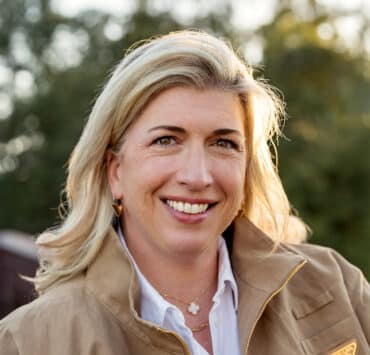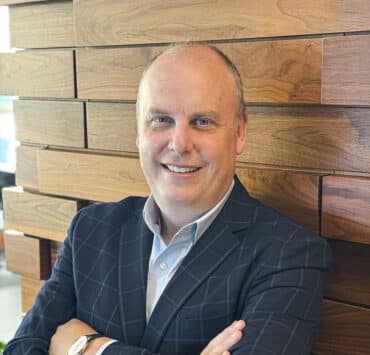|
Getting your Trinity Audio player ready...
|
In the Okafor household, if something broke, Chinenye Okafor would fix it. “I would wire things and weld things together and get a lot of our technology devices back up and running,” she says. With exceptional math and science grades in high school, it was an easy conclusion she would become an engineer. After all, her father has a PhD in engineering and is a professor of mechanical and aerospace engineering.
Although fascinated with engineering from a young age, the subject was not her only interest. Through the mother of one of her youth basketball teammates, Okafor was introduced to a program called Teen Court. “Everybody knew I was good at arguing and stating a case, and I was a stellar student,” says Okafor, global head of intellectual property (IP) and patents at Fluence Energy.
The Teen Court program rigorously trained high school honor students in the court system, offering a glimpse into the legal profession, and then allowing them to try misdemeanor juvenile cases. “They could go the regular court system route, or they could go the Teen Court route where they’re tried and represented by their own peers,” Okafor says.
Okafor’s glimpse into the legal system solidified something she’d suspected. “I loved everything about it. I loved representing people, I loved defending people, I loved stating my case. I really loved representing clients,” she says.
She first learned about patent law from her father. As she was boarding a plane for a campus tour of Yale, he handed her printed articles on patent law. “This was the first time I heard about patent law,” Okafor says. The articles called patent law a new, fast-growing career.
“It explained that you had to have a science and engineering background to practice this type of law,” she says. “I can eventually connect engineering with law and do something called patent law,” Okafor remembers thinking.
She was accepted by Yale where she majored in electrical engineering, minored in computer engineering, and captained the basketball team. “I could have done political science, but engineering was applicable with the way I think,” Okafor says. “I loved it. I’m very detailed-oriented and solution-oriented. I break things down.”
After earning an engineering degree from Yale, she considered a professional basketball career, although her parents disapproved. Ivy League athletes don’t fly very high on the radar screens of pro basketball scouts. Determined to persevere despite breaking a toe senior year, Okafor, who has a Nigerian background, tried out for the Nigerian National Team wearing a semi-cast.
“Limping and on crutches before the tryout. Then back on crutches after the tryout. Really crazy,” Okafor remembers. She did not make the cut and moved to her backup plan, accepting an engineering position in the defense industry. Soon after, she had surgery that dashed her dreams of playing professional basketball. With hopes of merging her love of engineering with her love of law, she enrolled at George Mason Law where she earned her JD.
She came to Fluence in 2021 as its first in-house IP attorney. “They needed somebody to manage the patent portfolio and start the IP program,” she says. Fluence has fifteen offices globally, and Okafor handles the company’s wide scope by implementing the appropriate processes. “If there’s no process, that breeds chaos. And chaos is never a good thing in the IP world.”
Upon arriving at Fluence, she implemented an IP policy and an IP management software that allows her team to store invention disclosures, applications, and annuities. She designed a policy that educates Fluence engineers on IP, patents, trade secrets, and the Fluence portfolio. “Many outside the IP world do not know anything about IP, they don’t understand it and don’t think that what they are working on warrants a patent or trade secret,” she says.
Okafor travels the globe training engineers on “IP 101” and discussing the differences between patents and trade secrets. “If we want to protect the company and our competitiveness and leading position in the industry, we have to think five or ten years down the line. If you don’t protect things now, then five or ten years down the line when you pick your head up out of the sand, everybody would have grabbed protection. There’s no more market share and that’s when people will start suing,” Okafor says. She has more than tripled the Fluence patent portfolio.
Before coming on board at Fluence, Okafor had stops at Spencer Fane and Sheppard, Mullin, Richter & Hampton. Now, her team at Fluence comprises a patent agent and a paralegal, and she’s assembled an IP committee with individuals from the C-suite and chief engineers. She advises young attorneys to soak up as much information and experience as they can. “It’s easy to move senior, but it’s hard to get that time back. If you go in-house, it’s too late to get that information. If there are holes in your foundation, they can be expounded upon,” Okafor says.
“Chinenye has accomplished a great deal at Fluence. Buchanan is thrilled to play a role in Fluence’s IP strategies as they lead the energy storage industry.”
–Sunjeev Sikand, Shareholder

